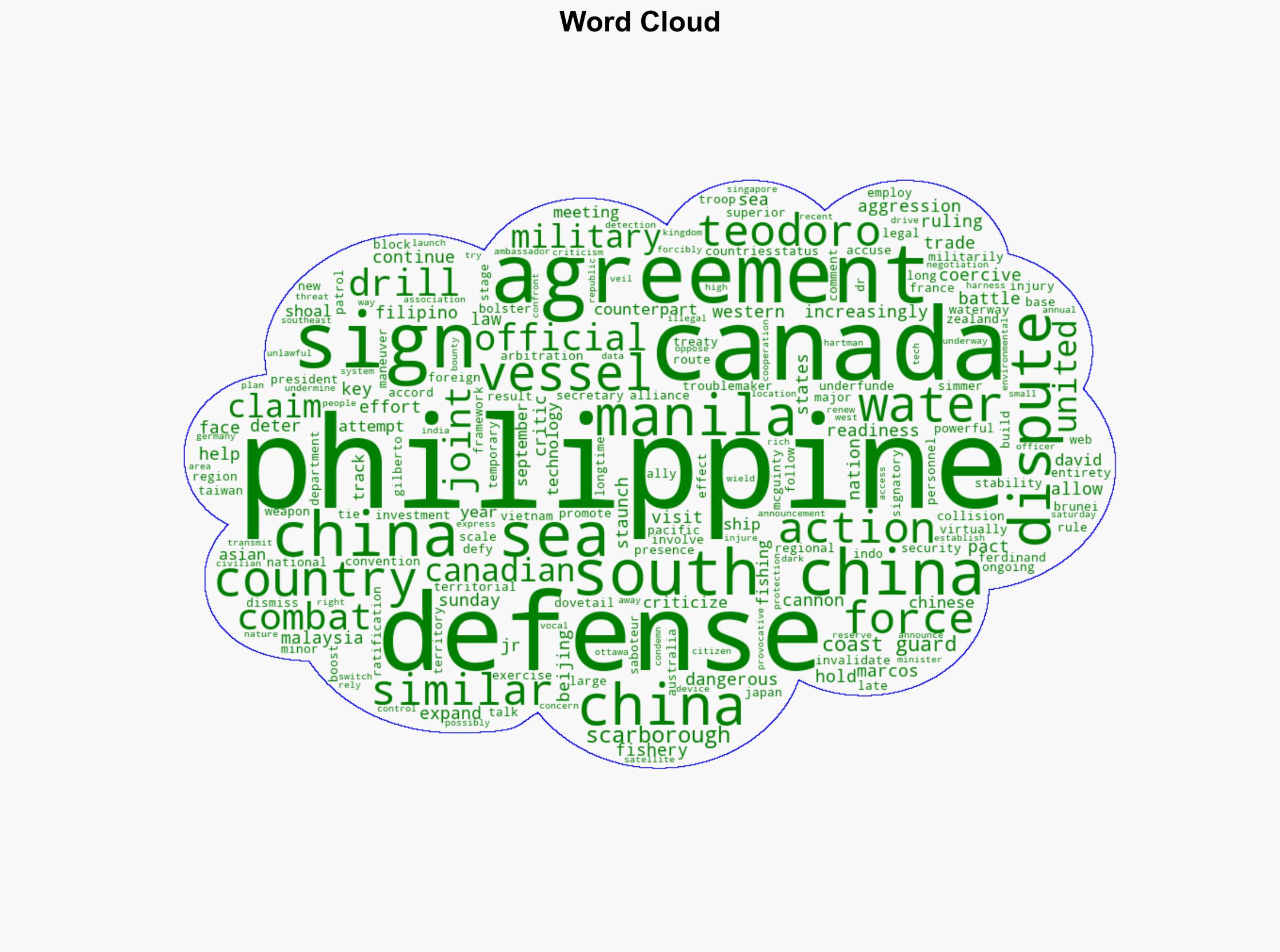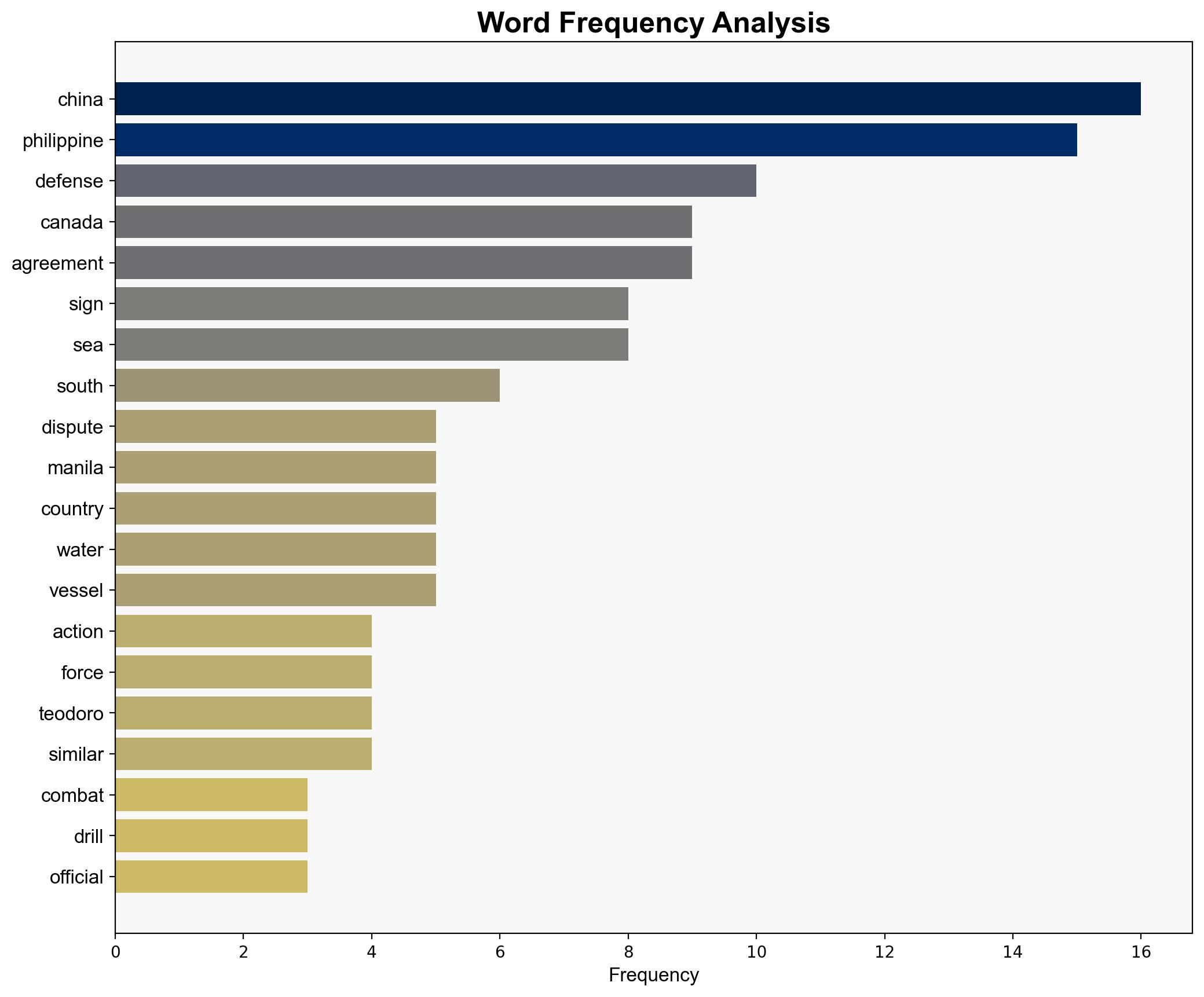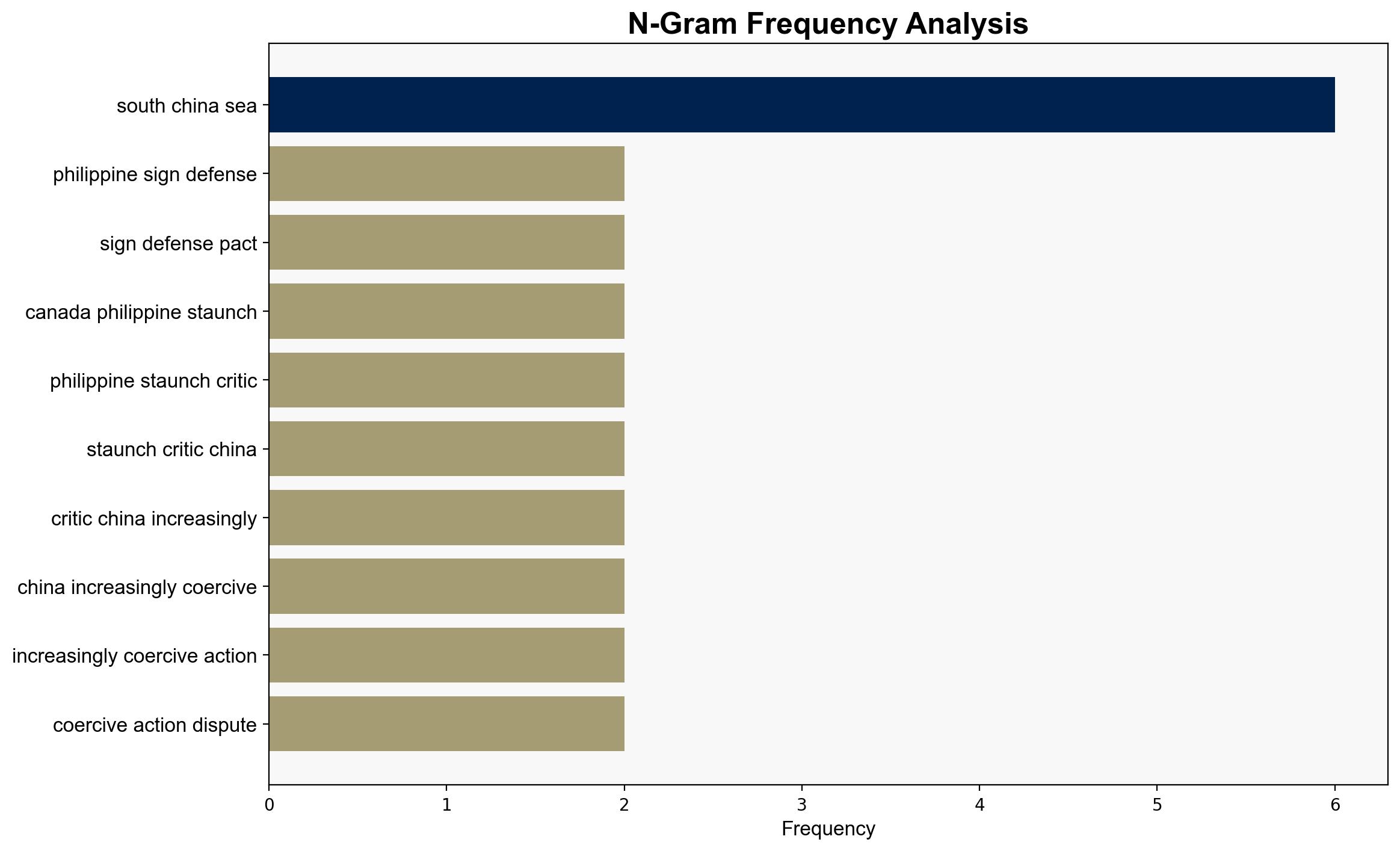Canada and Philippines to sign defense pact to boost combat drills and deter China’s aggression – ABC News
Published on: 2025-11-02
Intelligence Report: Canada and Philippines to sign defense pact to boost combat drills and deter China’s aggression – ABC News
1. BLUF (Bottom Line Up Front)
The most supported hypothesis is that the defense pact between Canada and the Philippines is primarily aimed at enhancing military readiness and deterring China’s aggressive actions in the South China Sea. Confidence in this assessment is moderate, given the geopolitical complexities and potential for misinterpretation of intentions. Recommended action includes monitoring China’s response and preparing for potential diplomatic engagements to manage tensions.
2. Competing Hypotheses
1. **Hypothesis 1**: The defense pact is a strategic move to strengthen military cooperation and readiness between Canada and the Philippines, primarily targeting China’s aggressive maneuvers in the South China Sea.
2. **Hypothesis 2**: The agreement is part of a broader geopolitical strategy by Western nations to increase their influence and presence in the Indo-Pacific region, using the Philippines as a strategic partner to counterbalance China’s growing power.
Using ACH 2.0, Hypothesis 1 is better supported by the explicit mention of joint combat drills and deterrence against China’s actions. Hypothesis 2, while plausible, lacks direct evidence in the source text but aligns with broader geopolitical trends.
3. Key Assumptions and Red Flags
– **Assumptions**: It is assumed that the defense pact will directly enhance military capabilities and readiness. Another assumption is that China will perceive this as a direct threat, potentially escalating tensions.
– **Red Flags**: The potential for misinterpretation of the pact’s intentions by China could lead to unintended escalation. The lack of explicit details on the scope and scale of military exercises is a blind spot.
4. Implications and Strategic Risks
The defense pact could lead to increased military presence and activities in the South China Sea, potentially provoking China and escalating regional tensions. Economically, this may affect trade routes and investments in the region. Geopolitically, it could lead to a realignment of alliances, with countries in the region choosing sides. Cybersecurity risks may also increase as nations bolster their defense postures.
5. Recommendations and Outlook
- Engage in diplomatic dialogues with China to clarify the intentions of the defense pact and reduce the risk of misinterpretation.
- Monitor regional military activities and prepare contingency plans for potential escalations.
- Scenario Projections:
- Best: Strengthened regional security cooperation without provoking China.
- Worst: Military confrontation or increased regional instability.
- Most Likely: Heightened tensions with diplomatic efforts to manage them.
6. Key Individuals and Entities
– Ferdinand Marcos Jr.
– Gilberto Teodoro Jr.
– David McGuinty
– David Hartman
7. Thematic Tags
national security threats, regional focus, geopolitical strategy, military cooperation





